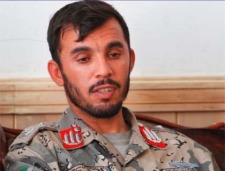Syria Feature: Checkpoint Humour Amid the Conflict (Harkin)
 It’s late February, and I have just returned to Syria on an undercover reporting trip, one of several I’ve made in the past year, when I run into my friend Amjad outside my hotel in Damascus. Amjad is himself only just back in the city, having months ago fled into exile as a result of his association with another Western journalist. We are keen to catch up, but neither of us wants to attract the attention of Syria’s secret police, so coffee is out of the question (the cafés are thick withmukhabarat). Instead, we keep walking, and as we walk and talk, Amjad tells me the latest checkpoint jokes.
It’s late February, and I have just returned to Syria on an undercover reporting trip, one of several I’ve made in the past year, when I run into my friend Amjad outside my hotel in Damascus. Amjad is himself only just back in the city, having months ago fled into exile as a result of his association with another Western journalist. We are keen to catch up, but neither of us wants to attract the attention of Syria’s secret police, so coffee is out of the question (the cafés are thick withmukhabarat). Instead, we keep walking, and as we walk and talk, Amjad tells me the latest checkpoint jokes.
 James Harkin,
James Harkin,  Syria,
Syria,  The Atlantic
The Atlantic 






